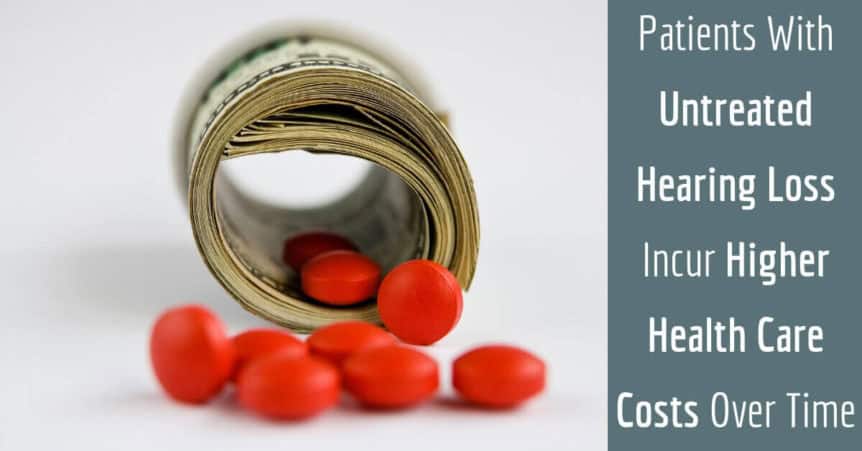- A Closer Look at Common Myths About Hearing Loss - May 7, 2024
- The Impact of Pets on Emotional and Hearing Health - April 26, 2024
- Strategies for Coping with Single-Sided Deafness - April 16, 2024
Untreated hearing loss is quite common, especially among older adults, yet there is much evidence to support that treatment and assistance have immense benefits. Not only are those using hearing aids able to experience the world once again in all of its vivid richness, they are also able to socially connect with others in ways that contribute to mental and even physical health.
Links between hearing loss and dementia even suggest that treating hearing loss with the use of hearing aids might be able to support cognitive health later in life. One of the often-uninvestigated effects of hearing loss is the linkage with economic well-being. Just as all of these related mental, cognitive, and physical health problems can be linked to hearing loss, so can higher health care costs over time. A recent study has demonstrated the powerful link between health care costs and untreated hearing loss.
Study: Patients with Untreated Hearing Loss Incur Higher Healthcare Costs Over Time
Researchers at the Johns Hopkins University Bloomberg School of Public Health, in collaboration with the AARP, University of California San Francisco, and OptumLabs, have engaged in longitudinal research into this relationship. The major finding is that those with untreated hearing loss are statistically discovered to have an average of 46 percent higher health care costs, totaling $22,434 per person over a decade. This difference is statistically significant for researchers to claim that there is a durable relationship between the experience of untreated health care and higher health care costs.
The differences between the two groups in the study—those who had be diagnosed with hearing loss but had not received treatment and those who were not diagnosed with hearing loss—were evident as soon as two years after the point of diagnosis. Within two years of diagnosis, this group had already incurred 26 percent more health care costs than the control group. This difference became even worse over the course of 10 years, at which point the gap had reached 46 percent.
One might ask how and why those with untreated hearing loss had incurred so many more health care costs than their counterparts, and the reasons had been largely speculative. This research has demonstrated the types of health care costs that are incurred, including 50 percent higher costs due to hospital stays, 44 percent higher risk for hospital readmission within 30 days, 17 percent higher likelihood to have an emergency room visit, and 52 percent more outpatient health care visits.
Researchers also looked to other studies to understand the reasons for these different types of health care visits. A recent study by Jennifer A. Deal, PhD in the Bloomberg School Department of Epidemiology, discovered three particular conditions with statistically higher rates of incidence for those with untreated hearing loss. In her study, this cohort had a 3.2 percent higher rate of dementia diagnosis, 6.9 percent greater rate of depression diagnosis, and 3.6 percent more falls. These correlations with hearing loss may hold the key to the higher health care costs discovered in the related Johns Hopkins study. Perhaps those emergency room visits were sometimes related to the greater incidence of falls, and perhaps some of the other costs were related to dementia and depression.
Deal makes it clear that we do not yet know the effects of hearing loss treatment on these statistics. “We don’t yet know if treating hearing loss could help prevent these problems,” Deal says. “But it’s important for us to figure out, because over two-thirds of adults age 70 years and older have clinically significant hearing loss that may impact everyday quality of life. We need to better understand these relationships to determine if treatment for hearing loss could potentially reduce risk and help maintain health in older adults.”
Visit Us at New Leaf Hearing Clinic
With these possibilities in mind, it is more important than ever to have your hearing checked and to discuss possibilities for treatment with us at New Leaf Hearing Clinic. What costs you might incur in terms of hearing aids or other assistive technology may be far outweighed by the health care costs you can save, not to mention the wellbeing and peace of mind that you will experience due to better overall health. As you look toward the next chapter of your life, be sure that healthy hearing is part of the picture you see!

